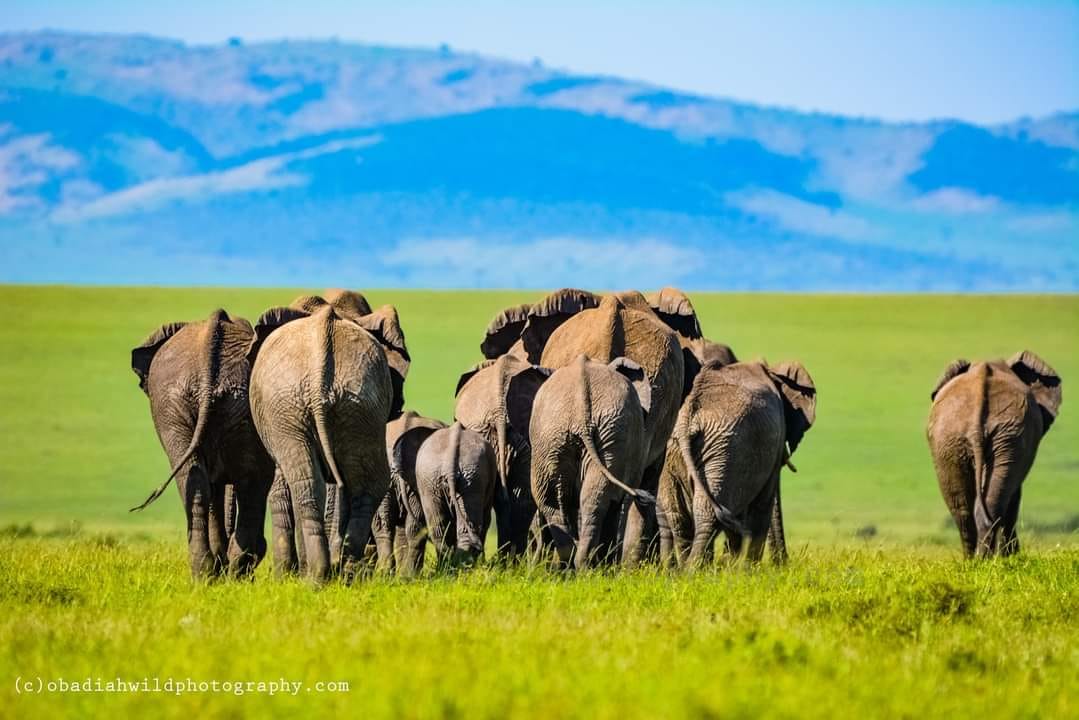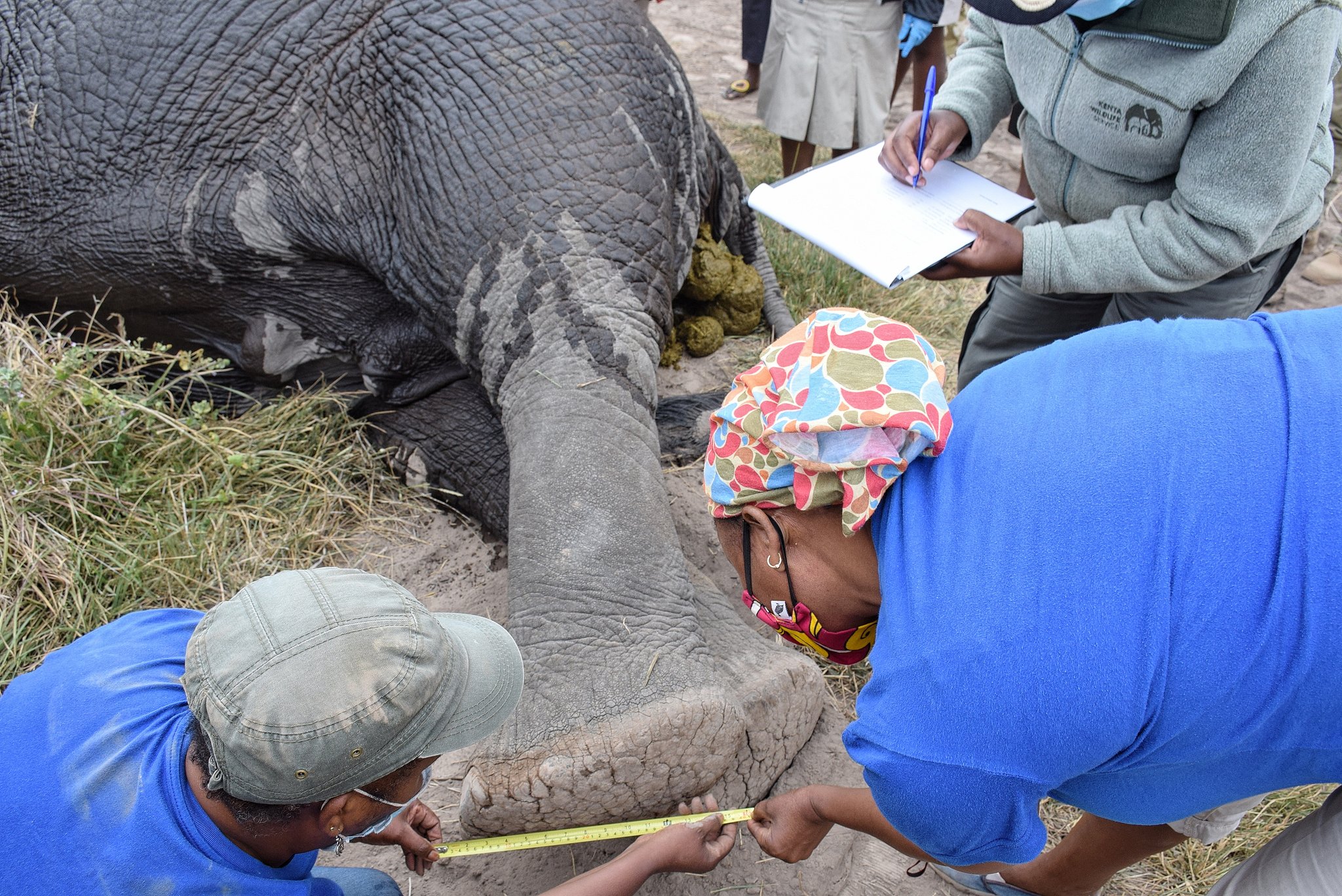
- Inspiring People -
- 5mins -
- 1,498 views
Elephant baby boom in Kenya’s Amboseli National Park — 140 Born (including Rare Twins)
A combination of good rainfall and a drop in tourism due to lockdowns has led to the birth of 140 baby elephants in Amboseli National Park, bringing Kenya’s overall elephant population to more than double that of 1989.
“baby elephants are falling out of the sky” in Kenyan National Park
Kenya’s elephant population has more than doubled since 1989, its wildlife service announced at an event marking World Elephant Day last month. Tourism Minister Najib Balala said authorities have "managed to tame poaching,” and Cynthia Moss, of the Amboseli Trust for Elephants, told local news “It seems baby elephants are falling out of the sky,” and claimed “Every time our team goes out they find new calves.”

Heavy rains this year have brought so much vegetation there’s been no problem supporting the calves
The combination of interruptions in international travel and periods of heavy rainfall has led to Kenyan wildlife officials reporting a recent elephant baby boom. — reported GoodNewsNetwork last month.
In Kenya’s Amboseli National Park, 140 elephants were born in a single calving season–a record in this park known for its breathtaking views of Kilimanjaro and the savanna.
“It has been a difficult year for all of us but there is still much to celebrate,” said Winnie Kiiru, speaking for the Elephant Protection Initiative in a statement. “Here in Amboseli, elephants are thriving. 140 beautiful calves have been born in 2020 and more are expected.”
In fact, it’s a culmination, of sorts, for the country’s pachyderms. The Kenya Wildlife Service reported on Wednesday that, from 1989 to today, the nation’s elephant population has more than doubled. This is in part because authorities in the past couple of years have “managed to tame poaching in this country,” reports Tourism & Wildlife Minister Najib Balala.
The announcements corresponded with World Elephant Day on August 12—and included the very special news that two of the newborns were twins, a rarity among the species.
Cynthia Moss, director of the Amboseli Trust for Elephants, told AA News this week, “It seems baby elephants are falling out of the sky. The ability of a female to conceive and carry a calf to term depends greatly on her own physical condition.”
In drought years, female elephants often can’t find enough food to supply their calves with milk—even in a park that is the size of Yellowstone (3,100 square miles / 8,000 sq. km)—but the rains this year have brought so much vegetation there’s been no problem supporting the newborns—even twins—as they begin their journey through life.
Source: GoodNewsNetwork

Kenyan anti-poaching efforts are high and elephants are mostly safer than in other parts of Africa
Amboseli National Park, which sits at the foot of Mt. Kilimanjaro, has reported the birth of more than 140 calves this year and counting. What’s more, two sets of twins were were among the births, a rare occurrence indeed according to Amboseli Trust For Elephants (ATE), a nonprofit conservation group in Kenya.
By contrast, the Trust reported 113 new calves born in 2018. (2019 is not a good year for comparison because the gestation period for elephant pregnancies is up to two years.)
"The main reason the population is rebounding is due to the surplus rains we have had over the past two years," Tal Manor, project manager for ATE, said in an email to NPR. "Baby booms are largely tied to ecological changes."
In 2019, the International Rescue Committee reported higher than normal rains, which caused massive flooding, killed people and damaged crops in East Africa. The heavy rain came after the region had years of severe drought. For elephants, more rain means more vegetation for grazing and fewer deaths due to dehydration and starvation.
"Overall in Kenya anti-poaching efforts are also high and elephants are generally safer, which means [fewer] get killed than in other parts of Africa," Manor added. "And Kenya’s elephant population is slowly increasing."
However, there are still several threats to elephant populations — climate change related drought, clashes with farmers whose land the elephants trample and poachers who illegally hunt and kill the animals for their valuable tusks.
Kenya’s Cabinet Secretary for Tourism and Wildlife, Najib Balala, says that growth in elephant population is in part due to the country’s efforts to stop poachers.
"In the last couple of years we have managed to tame poaching in this country," Balala told reporters at Amboseli National Park during an event that coincided with World Elephant Day last month.
In 2019, the Kenyan government instituted stiffer consequences for anyone convicted of poaching, including large fines and prison time, the AP reported.
In Kenya, 80 elephants were poached in 2018. The number dropped significantly to 34 in 2019. And in 2020, the numbers are on track to hit an even smaller figure for the full year.
"Our number of poached elephants from January to today has been seven," Balala said, adding: "We regret it has been seven."
In 2016, NPR reported on a comprehensive census of African elephants that found the overall population decreased by nearly a third between 2007 and 2014, totalling in 144,000 animals lost.
Source: npr.org


